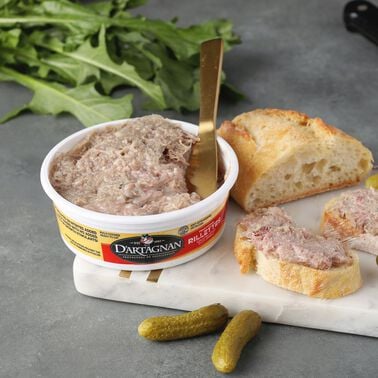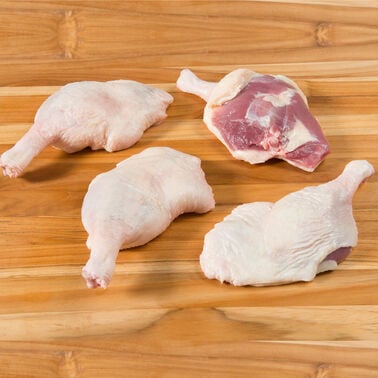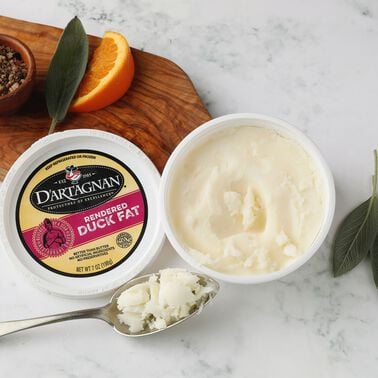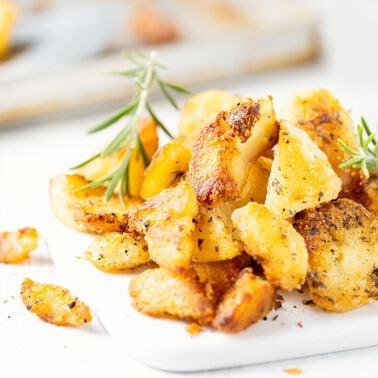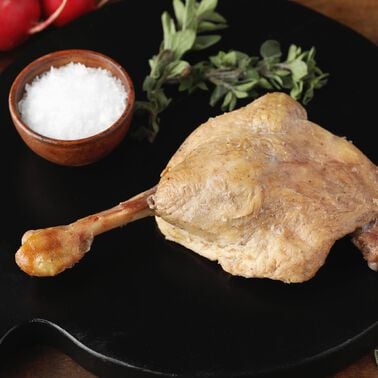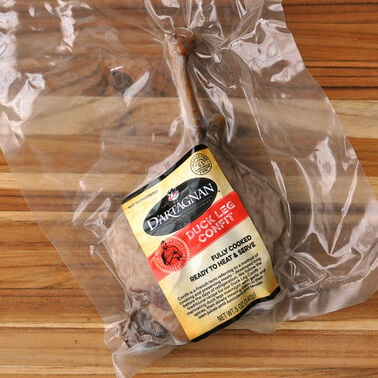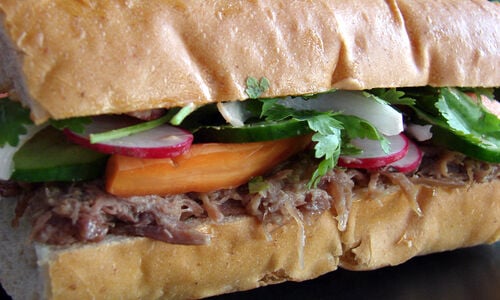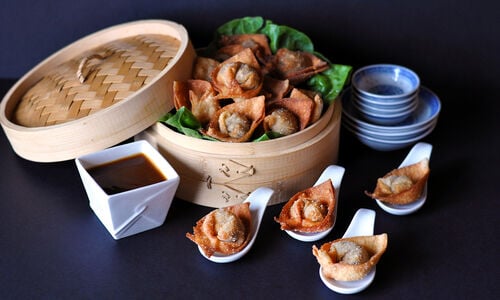
Rillettes are similar to pâté, in that they have a more even consistency than rillons do. To make traditional rillettes, pork is chopped and very slowly cooked in fat. When the cooking process is done, the meat is shredded, salted and packed into small pots. A layer of the cooking fat is spread atop the meat and the rillettes are ready to be eaten or stored.
In the modern era, chefs have expanded the definition of rillettes to include similar products made from a variety of poultry, rabbit and fish. One popular variety of rillettes is made from duck. Much like duck confit, the dark meat from the legs and thighs of the bird are gently simmered in a bath of duck fat until they are reduced to being tender ribbons of meat. Packed into small jars, duck rillettes are delicious spread on bits of toasted bread.
Rillettes made from fatty fish like salmon or tuna have the added advantage of being far quicker to prepare than the traditional variety. For salmon rillettes, it is common practice to finely chop a combination of freshly cooked and cooled salmon and a bit of smoked salmon and stir it into butter and a variety of spices and aromatics. While not a diet dish, once in a while it makes for an excellent treat.
Rillons are similar to rillettes in that they are also traditionally made from pork. In fact, they both start out in very much the same manner. To make rillon, pork (for this treatment, the belly meat is typically chosen) is cubed and slow cooked in fat. However, the cooking time is not as long for rillons as they are intended to retain their shape.
Once the meat is tender but not falling apart, the rillons are ready to be eaten or stored. Again like the rillettes, rillons can be stored by packing them in strained fat and then cooled. Modern food safety standards recommend that both rillettes and rillons be stored in the refrigerator. However, throughout history, a cool cellar would have been sufficient.
Because these two varieties of potted meat are quite rich, they are often served with baguette and cornichons for balance. They make excellent additions to cocktail parties and picnics, both for their ease of eating and for the transportability. Often, you’ll find both rillettes and rillons being sold at your local farmers’ markets and gourmet grocers.
